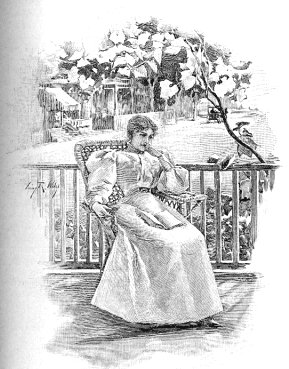Ten Years
Today, a rite of passage. The University of Houston's College of Engineering presents this series about the machines that make our civilization run, and the people whose ingenuity created them.
January 4th, 1998, was the tenth anniversary of this radio series. That ten years of study, learning, and writing programs has radically changed both what I know and the way I know it. So I need to pause and ask you to look at the epistemological riddle with me: "How do we know what we know about the past?"
A few years back, I took pleasure in my increasingly sure grasp of history. But with knowledge comes doubt. As I told stories of human creativity, the subtle complexity of those stories grew. Every human drama began creating its own "Yes, but!"
No one can stand up to deconstruction, yet everyone has facets of nobility. Nothing ever happened just the way we think it did. History is storytelling, and storytelling is always inaccurate, yet history is nothing until we make it into a story. Separate facts from the story they tell, and the facts will only deceive us.
Last fall I fell into a strange vortex which helps put this into perspective. An organization decided they wanted to develop an Engines home page to dress up their web site. That was agreeable to me as long as they did the work.
As it turns out, this organization had no idea of the magnitude of the job. Soon I was left working 80-hour weeks on nothing but the web. I had to learn HTML, scan images, and become intimate with a totally new medium of storytelling. All the Engines programs to date, along with thousands of references, links, and illustrations, have now come to rest on our university web site.
It makes a grand resource, but it's a resource that fits no model of information transmittal we were raised with. The web neither duplicates nor replaces the printed book. Rather, it gives us means for flitting about, reading a passage here, seeing an image there -- rapidly building a picture in our mind.
And history's story takes shape in a new form. We're used to stories that unfold from the printed page. On the web, the story builds up like a mosaic. Some tiles are false, but they soon become obvious and we replace them with better tiles. Once we feared the lack of control of knowledge on the web. Now it's clear that the very intensity of interaction roots out falsity.
In the end, we see from a different perspective and learn different things. The web, far from replacing the printed page, has served instead to show how foolish it is to want to be an authority. No matter how much we know, the web always turns up one new fact to jar us with -- one more book to drive us back to.
So I enter my eleventh year reminded that we all own knowledge, and we all share in adding to the river of understanding. The past of human creativity emerges in all its contradiction and complexity from that vast flood. And I take great joy in knowing that I am no authority, but rather one more swimmer in that glorious turbulent tide of facts, understanding, and small glints of wisdom.
I'm John Lienhard, at the University of Houston, where we're interested in the way inventive minds work.
(Theme music)

From the 1896 Century Magazine
